Categories:
- ['Income']
Status:
Completed On:
Start Date:
Cost:
Vanilla Farming
In great demand, true vanilla is one of the most profitable spices in the world
Most families in Ayalagaya and Arri wards live on subsistence agriculture and own or rent small areas for cultivation. The products they grow - maize, peas, cassava, beans, and banana, among others - provide for the basic needs of the family. The small surplus, if any, is sold in the local markets, but it brings little or no profit to the farmer, allowing only for a marginal livelihood.
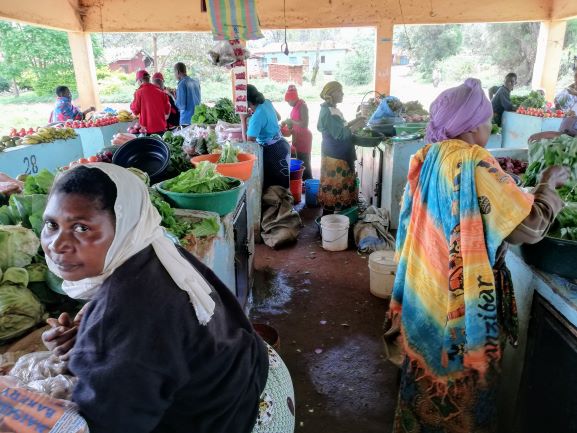
Karimu has been investigating ways to increase farming income. Adding new crop species carries the potential to generate a new source of income for those families. A study carried out by Karimu with the support of the social enterprise Natural Extracts Industry Ltd. (NEI) located in Kilimanjaro, Tanzania, shows that our region has adequate conditions to grow one of the most profitable spices in the world: vanilla.
A Karimu commissioned study has shown that the soil in Ayalagaya and Arri wards has the correct PH to ensure good growth of the vines. The banana plantations common in the area can provide the shade that is essential for the vines so they will not get burned by the sun. Vanilla requires 2-3 liters of water per week and can be grown in most areas.
Since it requires only a small area for cultivation, the production can be remarkably high compared to other crops. While the cost of vines is relatively high, the cost of cultivation is relatively low, because vanilla farming uses organic practices avoiding use of fertilizers and chemicals. Vanilla also adds value to the farm, improving the soil structure and ensuring maximum land utilization for high productivity.
In addition, vanilla can usually be intercropped, which means that the farmers do not need to acquire new land or stop growing another crop. Vanilla farming creates diversity for the farmers, spreading their risks and ensuring that at least one of their crops will provide them with an income.
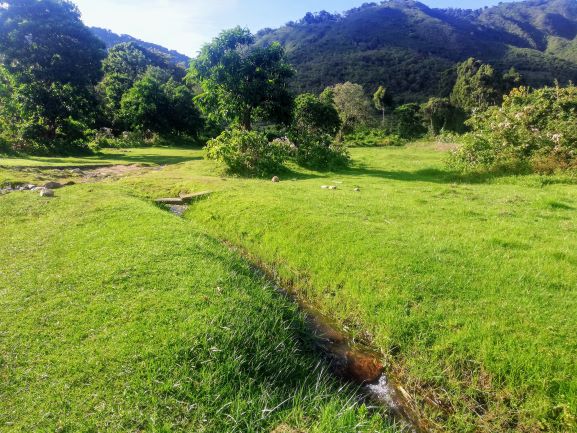
NEI, who specializes in the cultivation and export of vanilla, will train an agronomist in the cultivation and harvest of vanilla. The agronomist will, in turn, train and support the farmers to assure high quality vanilla crops according to NEI requirements. Upon harvest, NEI will handle the subsequent processing and export of vanilla providing a guaranteed market for their products.
To kick off the project, Karimu is funding the project until the first harvest when the project will be self-sustained. Karimu is purchasing the starter vines to be cultivated at the Institute and later sold to participating farmers. The first vanilla harvest is expected after 4 years. Karimu will continue to be engaged with NEI through the first harvest.
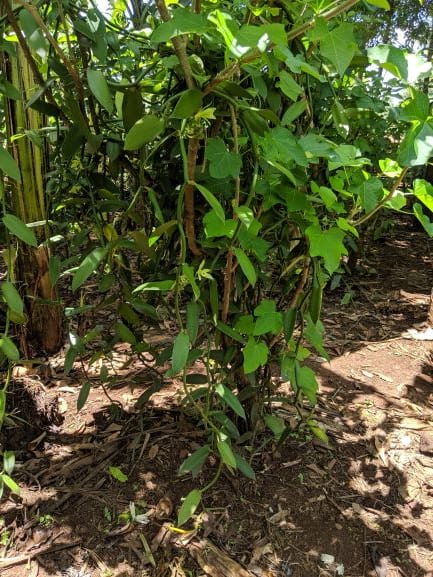
To be able to participate in the project, farmers must own the land where the vanilla will be planted and show evidence that they have the necessary funds to buy at least 50 vines within 6 months. Karimu is also incentivizing participation in savings groups . Farmers participating in a Karimu savings group for at least 6 months with no loan defaults have the opportunity to receive a one-time subsidy from Karimu to cover 50% of the vine costs for up to 50 vines.
Vanilla adds flavors to foods and beverages and is used in fragrances all over the world.
Karimu hopes that the high-quality vanilla produced in Ayalagaya and Arri wards will help farmers create a stable cash crop and increase their family income.
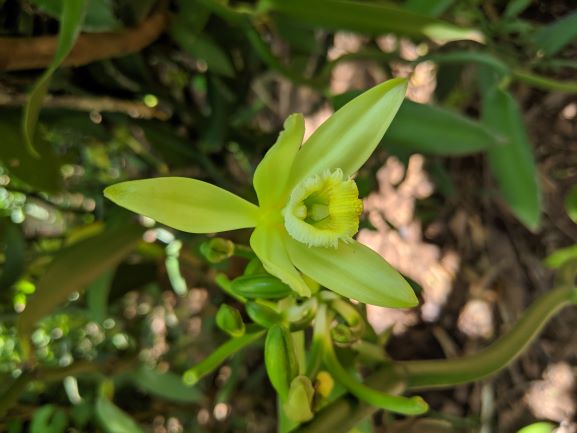
Status 12 2021: Registration to participate in the program began November 2020 and training began in 2021. We transferred vines to farmers, even in the pouring rain in March and April. Our income manager and the agronomists were committed to getting it done. Training will continue through the first 4 years which represents a full cycle from land preparation, to planting, to care, to harvest, to market. Our planned partnership with the Agricultural Institute to become a Center of Excellence for Vanilla fell through, but our primary partner, Natural Extracts Industries, has stepped up to provide the project management to continue the project. We are ending our first year with 20 participants. Unfortunately, of the 1580 vines planted, our farmers have lost 1153. We are working with Natural Extracts Inc. to determine root cases and replace the lost vines. Fortunately, after the Agricultural Institute exited the partnership, we successfully moved our demonstration and starter vines and greenhouse to a new location at Bacho primary school.
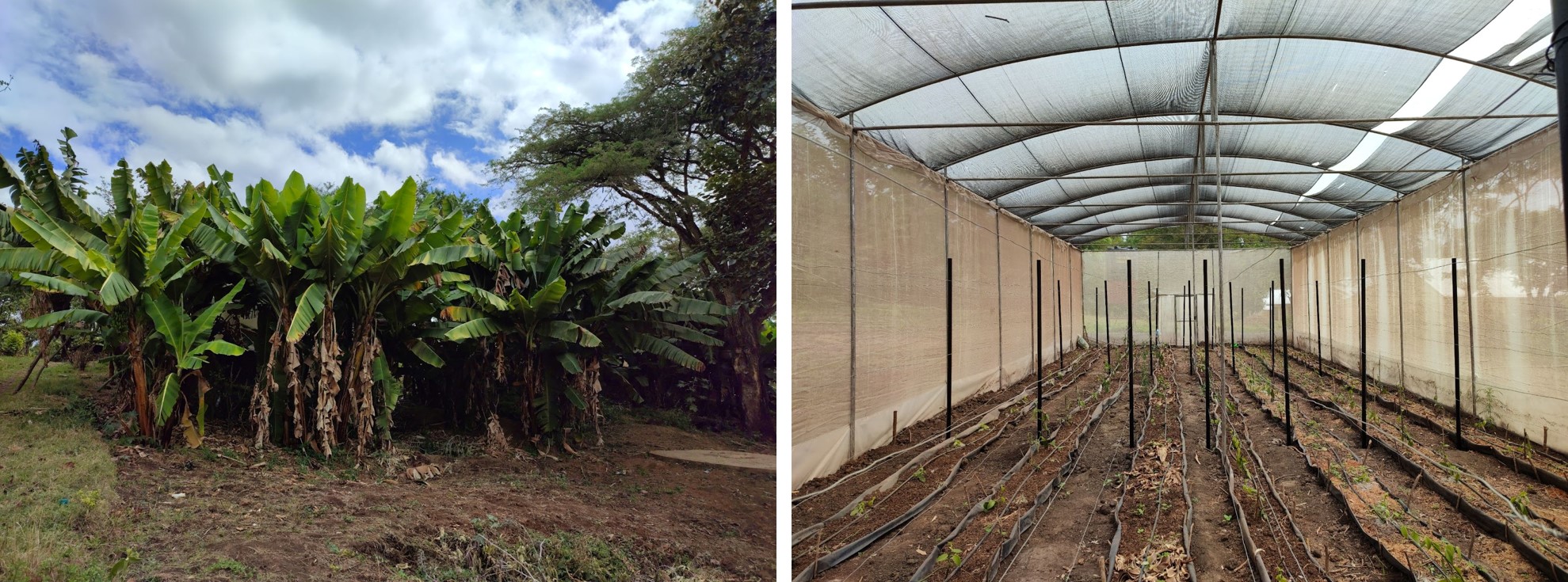
caption
July 2022 Update: The vanilla project is nearing completion of its second year. We still have 3 years to reach the first harvest. The farmers are learning a lot about the crop, including testing their patience and committment. In January 2022, 5 new farmers joined the project. After a quick survey to measure the farmers’ overall feeling, we arranged a trip in March to one of our partner’s farms. Here they were able to see a developed plantation, talk to successful farmers, and hear first hand about future income. It was definitely a boost to their confidence in the project. In the meantime, Karimu has addressed maintenance issues by fencing the demonstration field to prevent animals trampling the vines and is investigating a long-term solution for the supporting vines inside the greenhouse. In July while in Tanzania our COO met with all 25 vanilla farmers to measure their level of confidence in the project. The outcome could not have been better. The farmers are very confident and enthusiastically anticipating the first harvest. He witnessed a collaborative environment with a strong willingness of the farmers to help one another. They understand the importance of having a united community to ensure the project’s success.
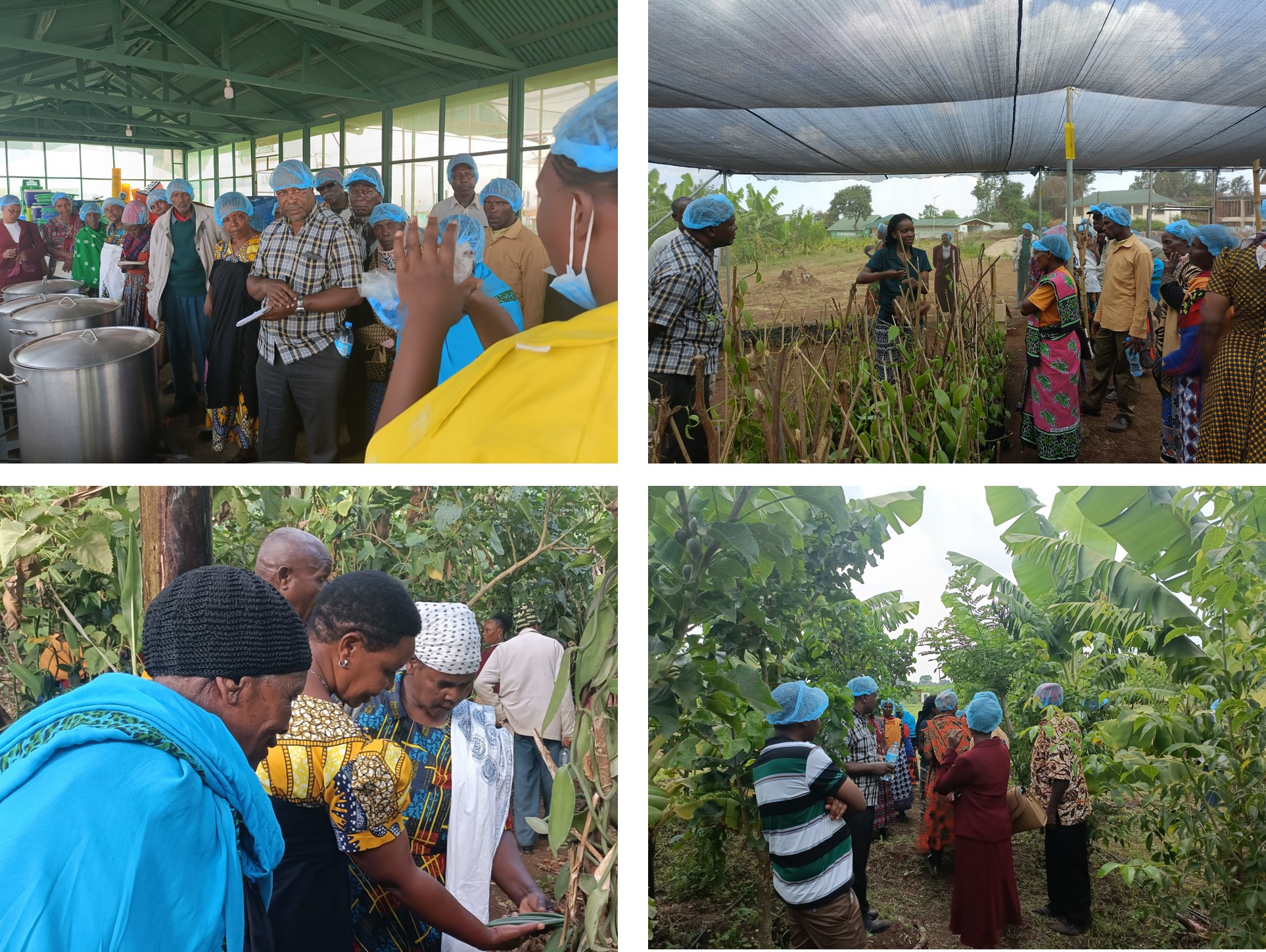
caption
January 2023 Update: The vanilla project is nearing completion of its third year. We still have 1 year to reach the first harvest. We ran a campaign in October and November to recruit more farmers and added 11 new farmers to the project totalling 36 now. Most farmers are still reluctant to invest in the vanilla crop due to the long harvest cycle (4 years), but with the first harvest revenue, we hope to see increased interest. To date, 72% of the farmers are from Ayalagaya ward and 28% from Arri ward.
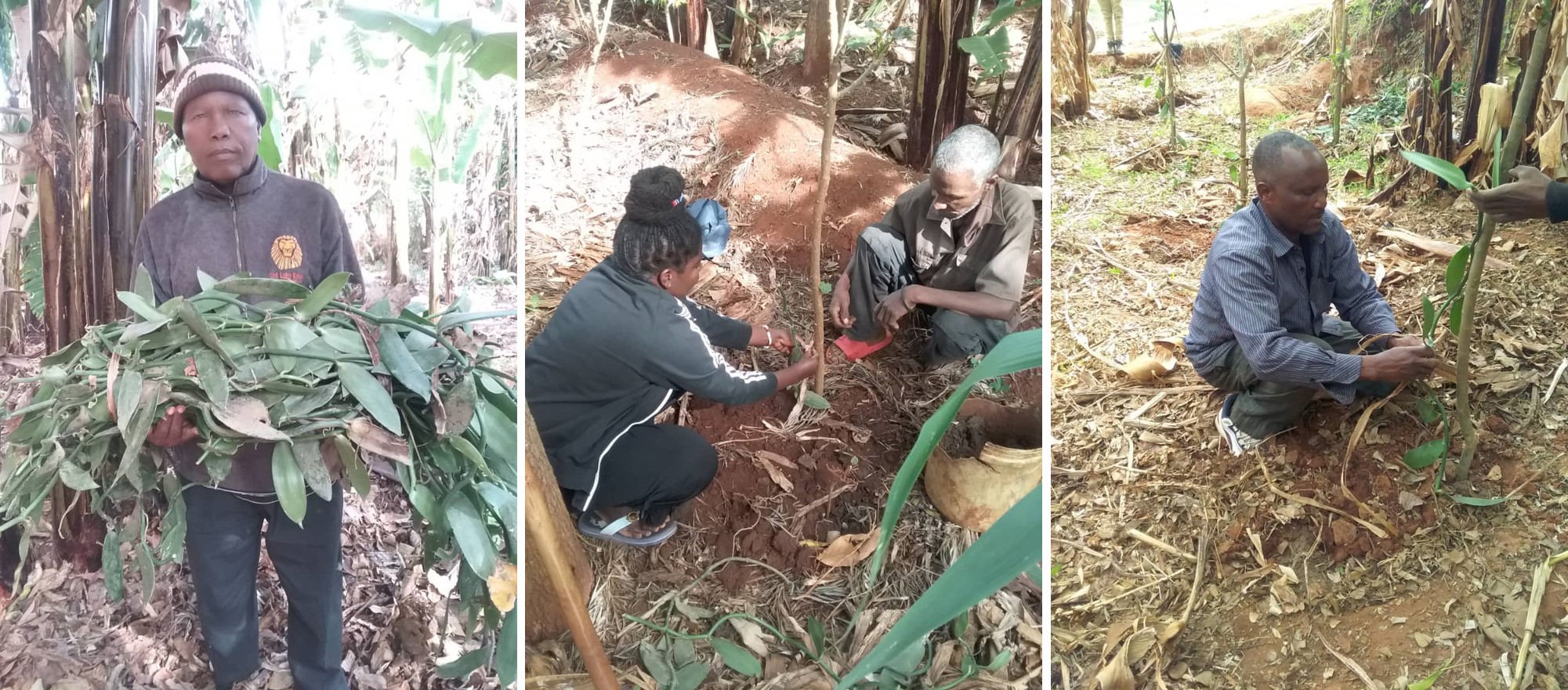
caption
January 2024 Update: The vanilla project is nearing completion of its fourth year. The heavy rains in December washed away some of the vanilla vines, but on the other hand the water was welcome as the remaining vines are healthier. For 2023 we had 1320 active vines, 66 of which died due to the long drought season. Nine vanilla vines from 3 farmers flowered in October 2023 producing 29 flowers of which 11 were pollinated. The pollination is a laborious and delicate process for the farmer having to go flower by flower. For 2024 we started the year with 1254 vines. We expect 429 to flower on 10 different farms. Note: this does not mean that other farmers are not doing well, but rather that they are only two years into the vine growth. We hope this indicates a significant flowering in the second half of 2024 and a robust harvest (our first) in 2025. The pollination is a laborious and delicate process for the farmer having to go flower by flower.
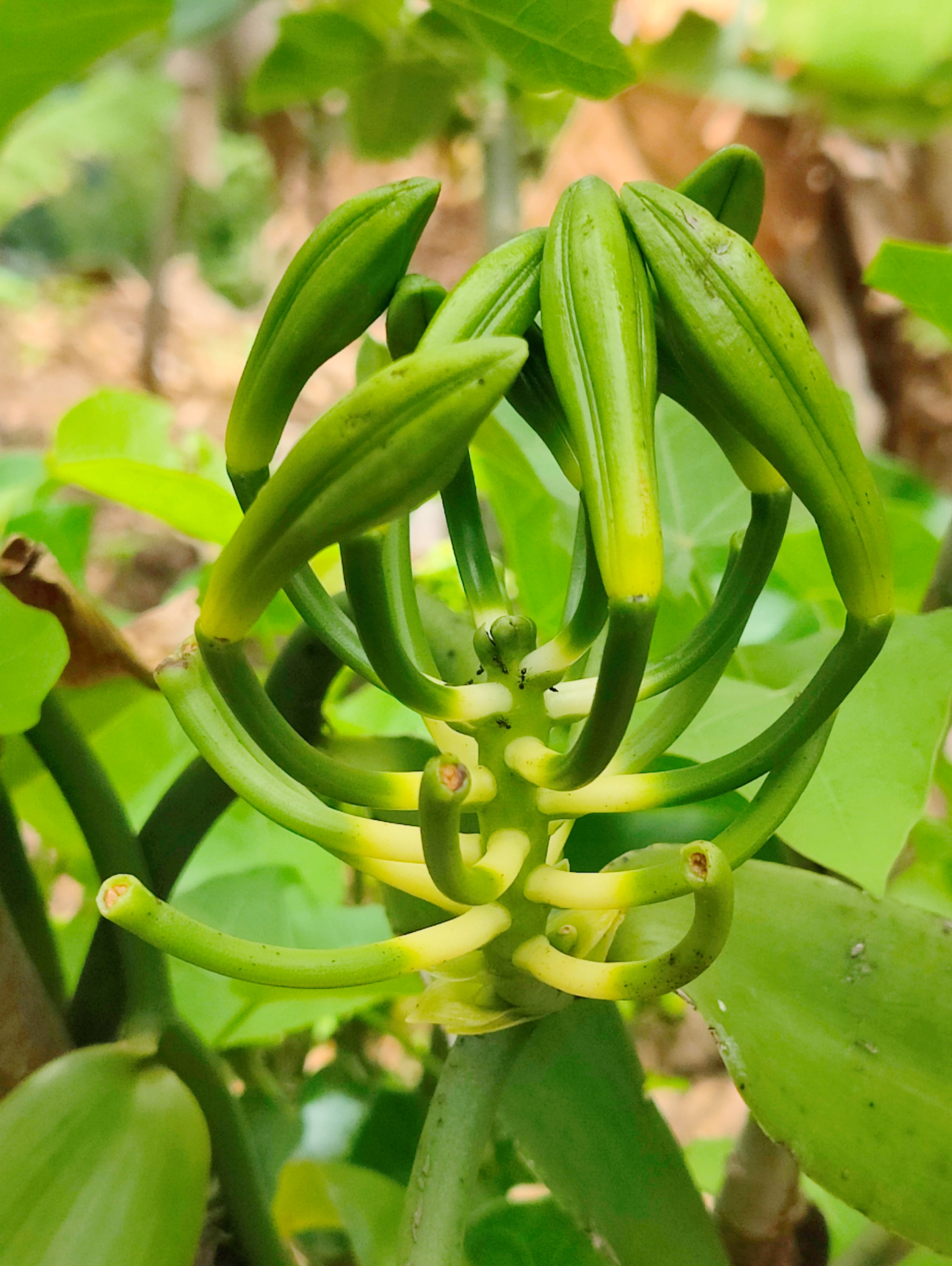
caption
Additionally, Karimu decided not to recruit more farmers in order to wait for the first vanilla harvest. We have 35 active farmers. To date, we expect 20-25 farmers to have the first harvest between July and October 2025.
NEI will have to play a more proactive role and has committed to carrying out periodic visits more frequently, following the agronomist’s reports more closely, and scheduling a second visit to successful farmers close to the Babati area as a form of inspiration and continued learning.
October 2025 Update: The Vanilla Project was shut down in 2025 due to persistently low market prices for green vanilla that made the crop unprofitable. Given the long-term investment made by the vanilla farmers who piloted this project, Karimu purchased the existing harvest and provided compensation for their investment, effort, and long-term commitment. The compensation was calculated based on the highest possible profit had the farmers planted maize (the typical crop) on their vanilla land.
Expected benefits:
-
Increase of farmer’s income by at least $270 per year
-
New and more stable income as farmers will have a guaranteed market to sell their vanilla harvest production
-
Creation of a Center of Excellence for Vanilla in the region that can support vanilla cultivation in multiple wards.
-
Reach project sustainability within five years.
-
Diversification of crops


